Bolivar, Constitucion de la Republica de Colombia, 1821.
- Regular price
- €5.500,00 EUR
- Regular price
-
- Sale price
- €5.500,00 EUR
- Unit price
- per
Founding document and constitution of the Republic of Colombia
Simón Bolívar (1783-1830).
Constitucion de la Republica de Colombia.
Rosario de Cucuta [but Bogotá], Bruno Espinosa, Impresor de Gob. Gral., 1821.- 11°.
4°. 66 pp. (lacks V pp. preliminaries). Collates: π, B-I4, [K1].
Later half calf with decorated paper sides.
First edition of the first constitution of Gran Colombia, known as the Constitution of Cúcuta. A monument of post-colonial liberty and arguably the most important book ever printed in Latin America. Gran Colombia consisted of current Colombia, Venezuela, Ecuador, Panama, northern Peru, western Guyana, and northwest Brazil. This is one of the very few copies that were printed of the first edition. A decree in this volume prints the order to reprint the constitution at Bogota in two or three thousand copies and to print one thousand copies of a Caracas edition. Rio and Philadelphia would also print editions in 1822.
The publication of this document meant the realization of Simón "the Liberator" Bolivar's most ambitious dream: to unite the current territories of Colombia, Ecuador, Panama, and Venezuela in a single State. The constitution was the result of the Congress of Cúcuta, meeting for five months between May 6 and October 14, 1821. The congress was installed by Antonio Nariño with the participation of 57 deputies, representatives of 19 provinces. In nearly two hundred plenary sessions, they worked in four commissions, of which one was dedicated to the Constitution and laws. In this congress, the Fundamental Law of the Republic of Colombia was ratified, promulgated in Angostura in 1819, establishing a centralist republican government. Simón Bolívar was elected President of the Republic and Francisco de Paula Santander, Vice President. The Constitution was the most important work of the Congress, and it remained in force until the dissolution of Gran Colombia, in 1830.
Provenance: this copy is inscribed “Jose Ma. Wiesner” at two places, including in between the names of the Diputado secretaries on the last page. José María Wiesner was involved in a polemic about the salt mine of Zipaquira near Bogota in 1836. Joseph Wienser was a German engineer who migrated to Colombia in the early 19th century to work on the same salt mine.
Condition: some pages slightly soiled, illegible inscription in foot margin of p. 17, 53. Corner missing of H2, not affecting text. Otherwise in very good condition.
This copy lacks five preliminary pages containing the introduction by the Congreso General. The title-page is printed on different paper, though seemingly contemporary. It has similar printing defects on the title as the Colombia National Library copy, such as the ink spill in the final “n” of the word Constitucion. But other minor defects do not match the other copies we’ve seen (BNC; LoC; Benson).
Reference: Sabin 14573 (Caracas 1822); Not in Palau(!?); online reference is a messy entanglement of e-books and later editions.
Literature:
Horst Dippel, ‘Constitutions of the World from the Late 18th Century to the Middle of the 19th Century, in: Sources on the Rise of Modern Constitutionalism. Vol. 3: America. K.G. Saur, 2010, p. 115, note 1.
On Wiesner see: Denuncio a la respetable opinión pública, al Supremo Gobierno y al tribunal que conozca en la causa de Juan José Lozano y Juan Nepomuceno Solano por alcance y malversación de los caudales de la salina de Chita. Tunja, por V. de Baños, 1838. BNC: FPD 469 FOL.642-643.
Couldn't load pickup availability
Share
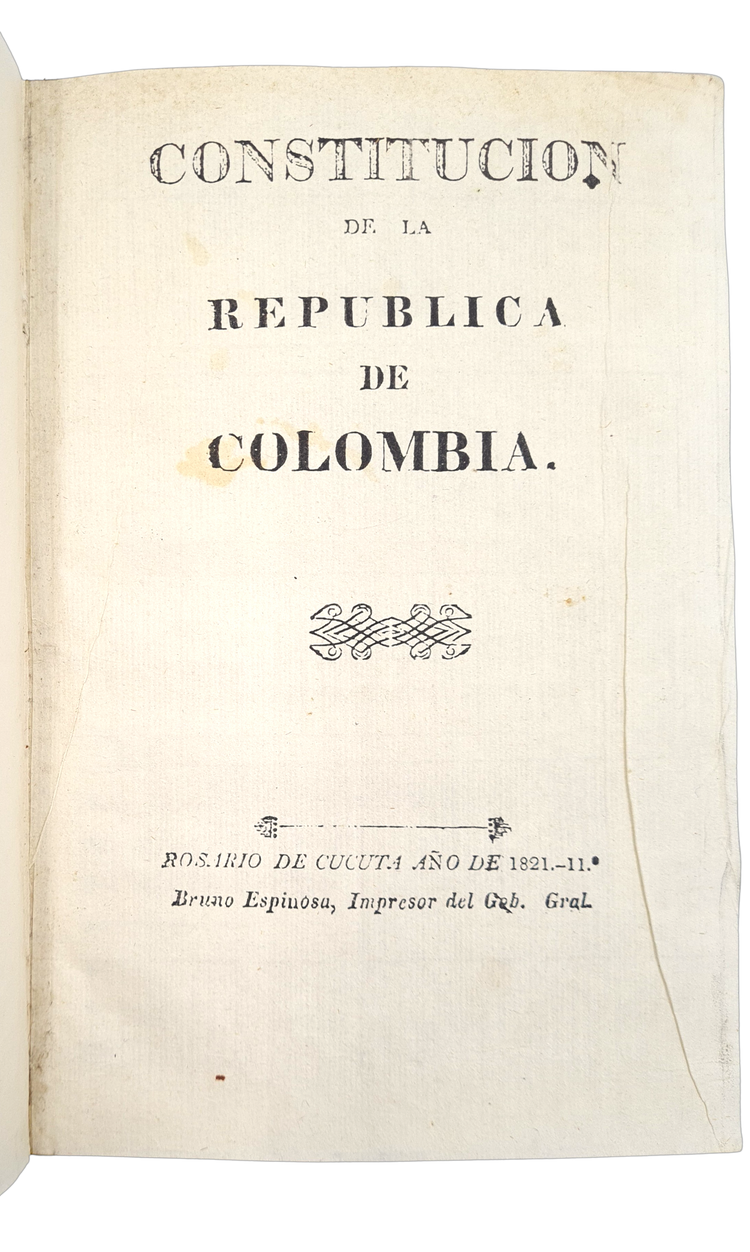
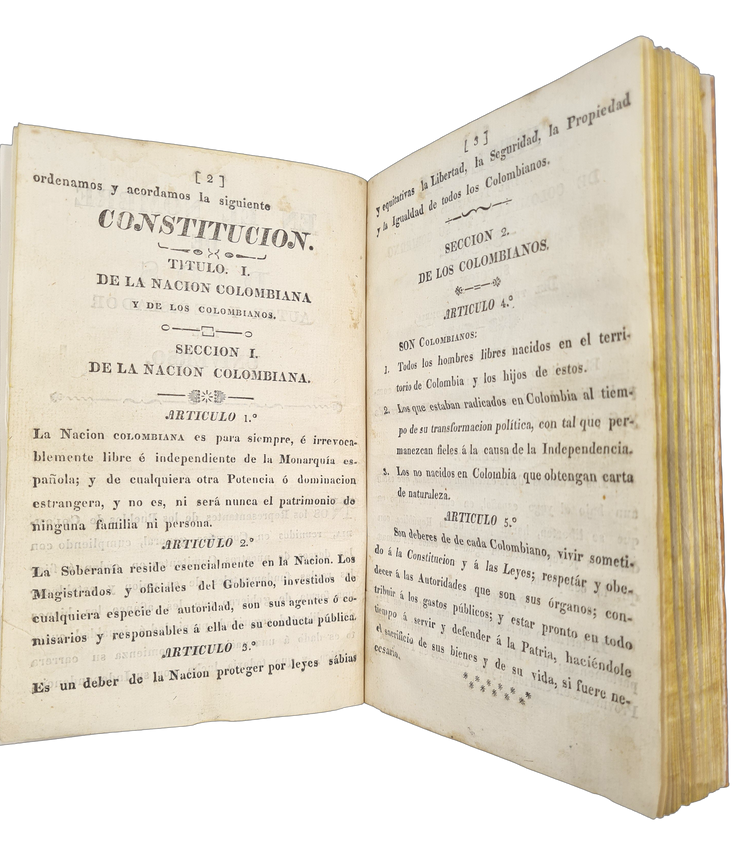
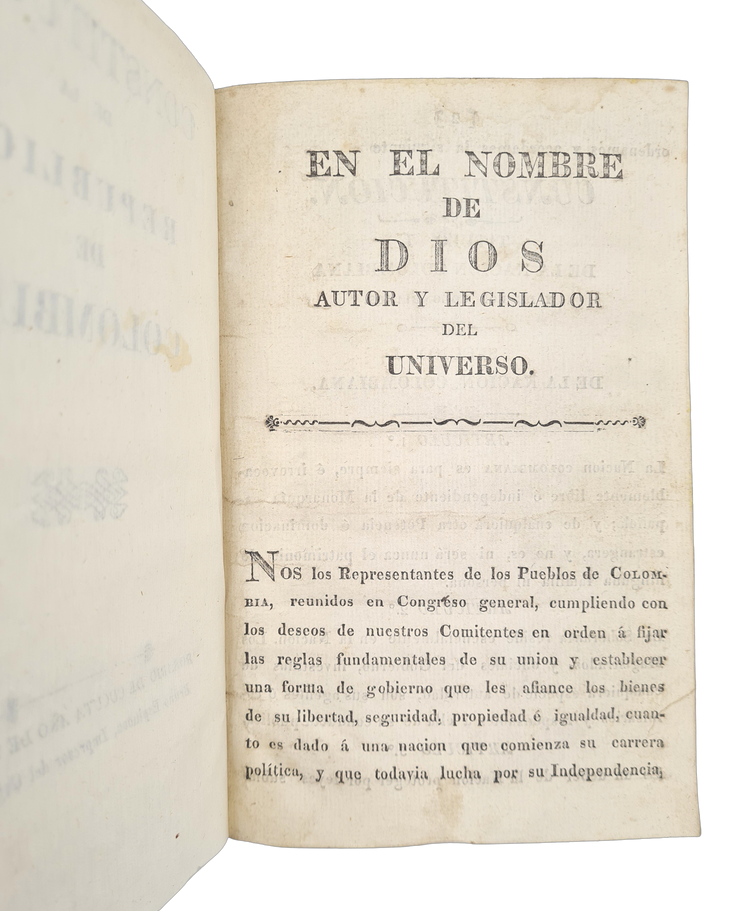
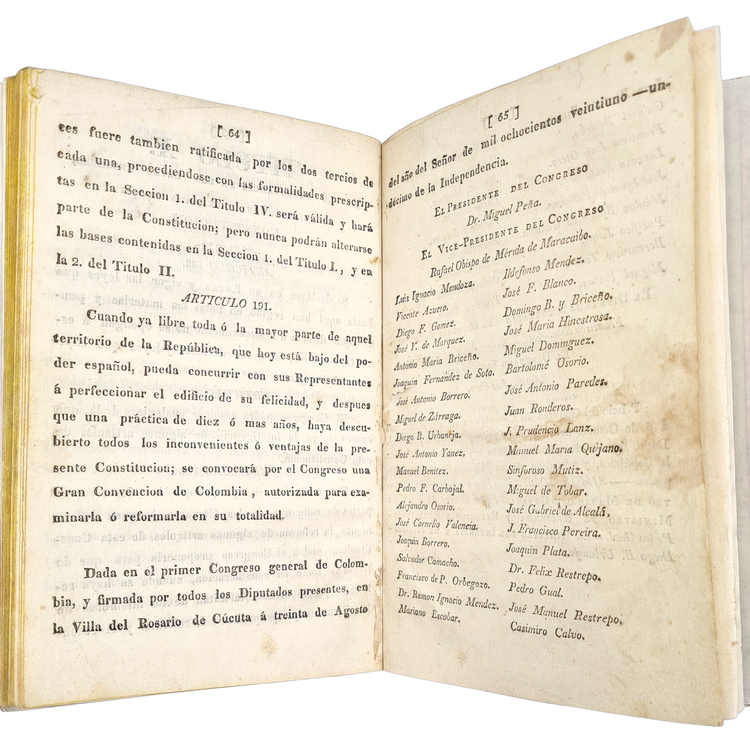
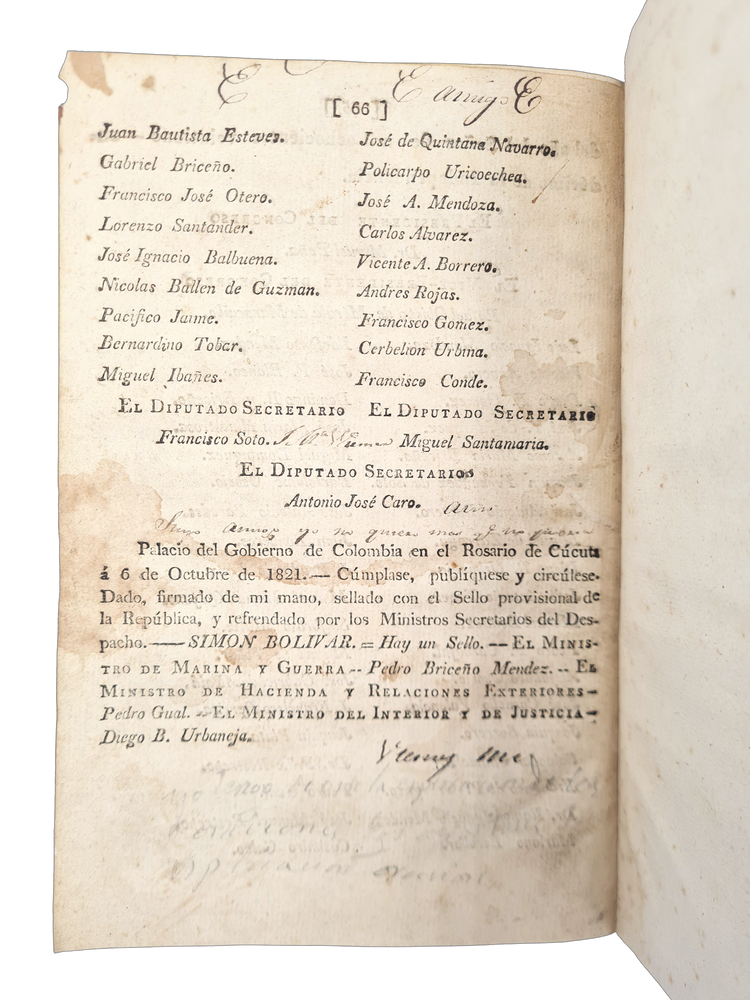
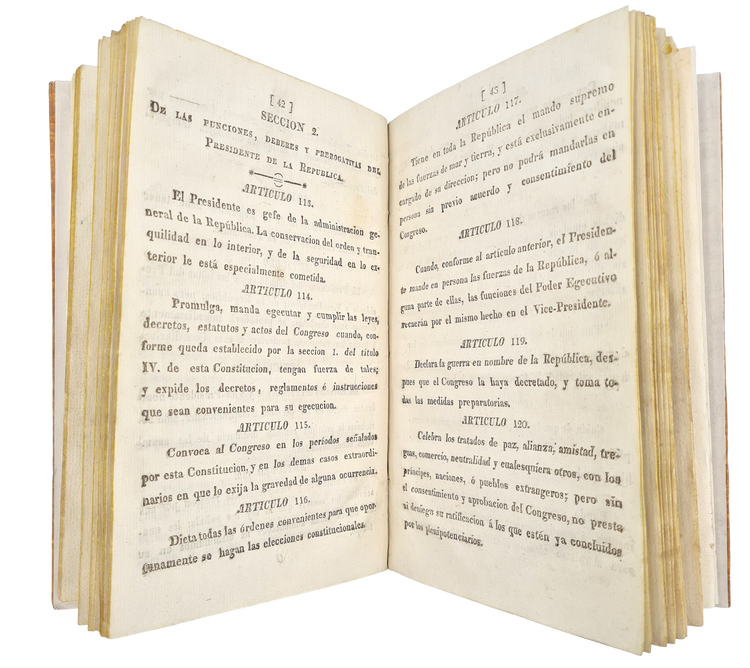
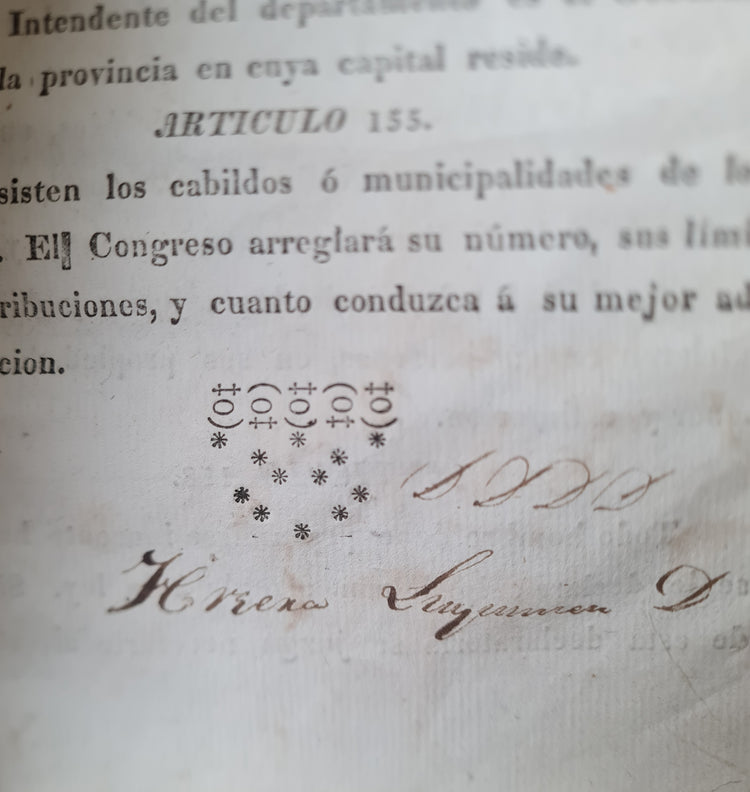
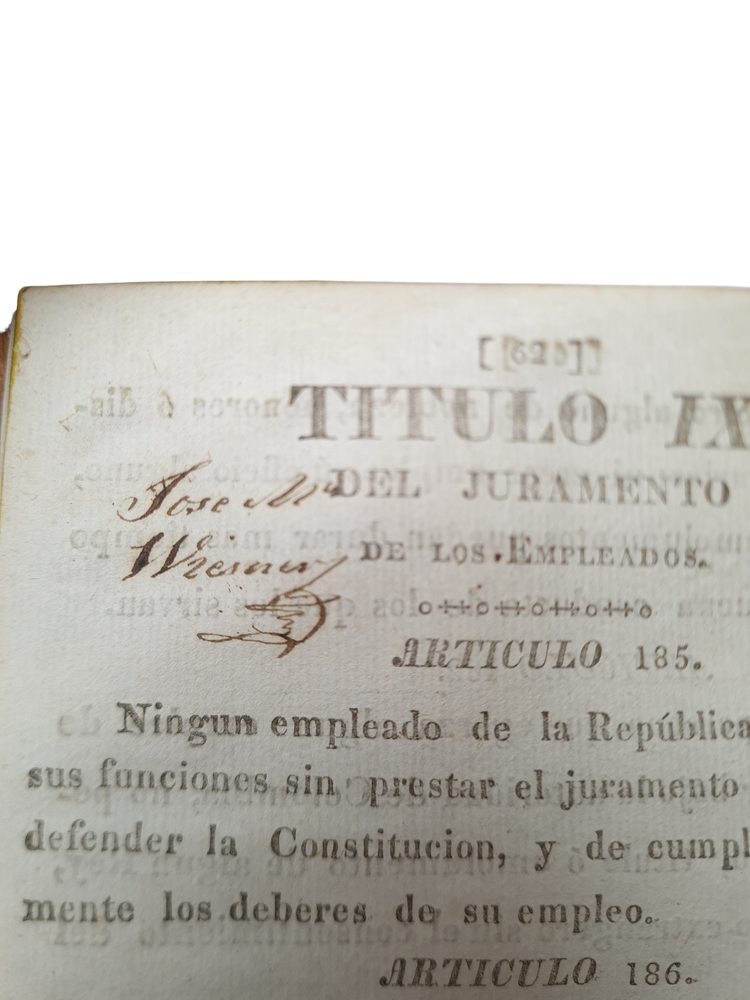
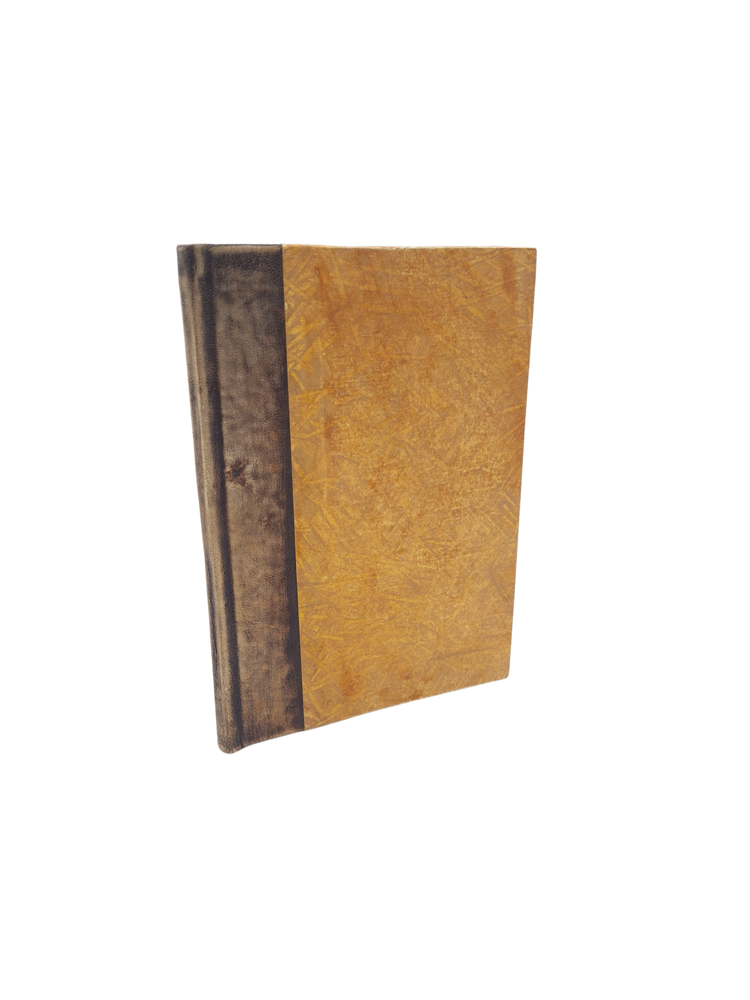
Contact
Email: hugo@artemrarebooks.com
Phone: +31651042297
Visit us on appointment at:
Former US Embassy
Lange Voorhout 102
2514EJ
The Hague (The Netherlands)
Shipping address:
Nannie van Wehlstraat 51
2548MN
The Hague
The Netherlands









